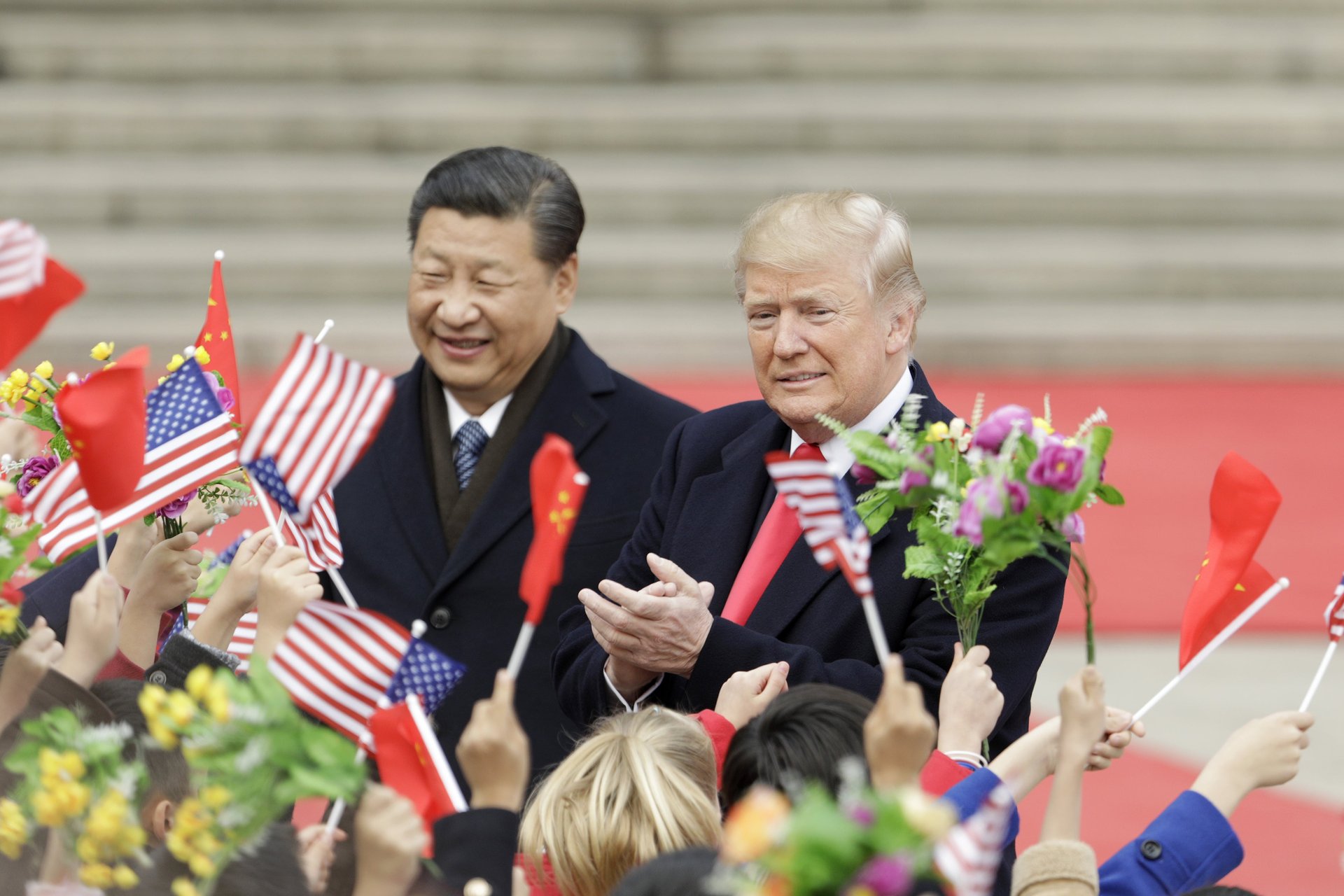Walmart and other 'dividend aristocrat' stocks to buy in a volatile market, according to a strategist
Eric Beiley, Executive Managing Director of The Beiley Group at Steward Partners, breaks down what China's retaliatory tariffs could mean for investors

Eric Beiley, Executive Managing Director of The Beiley Group at Steward Partners, breaks down for Quartz what China’s retaliatory tariffs could mean for investors, for the latest installment of our “Smart Investing” video series.
Watch the interview above and check out the transcript below. The transcript of this conversation has been lightly edited for length and clarity.
ANDY MILLS (AM): Given that China has imposed these retaliatory tariffs and launched an antitrust investigation into Google, how do you see this impacting global markets and strategies for US investors?
ERIC BEILEY (EB): Overall, I think we’ve dodged a bullet. Yesterday investors woke up pretty concerned. We were down pretty significantly with the Trump tariff announcements on first Mexico and Canada, then China. But as the day went on, we saw these agreements with Mexico and Canada, and you saw the reaction by investors, right? The markets recovered across the board. And so that’s positive. And then into today, tariffs are still a major theme and I think will be with the Trump administration, but we haven’t seen yet from investors a willingness to really exit. I think investors are still overall confident and on board with the equity market.
AM: So the tariffs are not a big deal?
EB: No, it is a big deal because tariffs have significant impacts. And across the board for investors, I would say they’re negative. Tariffs are attacks and so it has negative implications on pricing, on inflation, consumer demand, obviously on all the companies and how they react to their manufacturing practices. So tariffs are negative. We’re seeing it’s also a negotiation tool and if used effectively so far, you know, investors are nervous, but still on board. And so that’s, that’s my hope going forward.
AM: What are some other areas of volatility or uncertainty you see in the markets?
EB: I think number one is interest rates. We saw that in the early part of January. It looked like from a couple economic figures that inflation was on the rise. And if we, if you looked at the yield markets, the 30-year tipped at 5% and 5% is a level that is a big no-no for equities, right? And you saw this huge decline, right? 800 point decline in the markets, but then very quickly we recovered as more economic data came in. That inflation was not as prevalent. And today we’ve seen a big reversal. Rates have come down and equities have gone higher. The risk trade is there, but we’ll have to see. Rates and inflation are a big issue. And the Fed met in January and they decided to keep rates level, which was the consensus view, and we’ll have to see going forward. Trump wants lower rates. And so it’ll be interesting to see how the Fed-Trump relationship evolves.
AM: You’re cautiously optimistic and have said that you’re a fan of what you call ‘dividend aristocrats’ Walmart (WMT), Sherwin Williams (SHW), and Brown and Brown (BRO), who have consistently raised their dividend for 25 years. What about these companies do you find appealing in the current market environment?
EB: Well, we’ve seen a shift, right? Growth equity has really outperformed for the last several years, substantially over value stocks, dividend paying companies by almost two-to-one. But in the last two to three months, we’ve seen a shift. And this year, if you look at the value indexes, they’re outperforming quite a lot over growth. And so companies in my view that can reward shareholders with dividend payments and increase those dividend payments or dividend growth are very attractive long-term investments. And so these three companies have all shown in all types of economic cycles, they can raise their dividends and they’ve outperformed the S&P 500 on a five- and 10-year basis. That’s not easy to do. We all know Walmart, great American consumer store, Sherwin Williams, more in the housing market, and then Brown and Brown’s an insurance company, a very well-run financial firm.
EB: Clearly their size, their scale, their product base, their pricing, very loyal clients, consumers really like Walmart and they’re just very well run. I track the analysts who cover Walmart. I don’t know the ins and outs of everything, of their balance sheet and earnings and profits, but it’s just a fantastic American story and it’s a fantastic investment long-term.
AM: And you mentioned Sherwin Williams being more of a housing player. Are you optimistic about the housing market moving forward?
EB: Optimistic? We’ve seen housing now, for a while, there’s been very little supply and prices keep going higher, right? So it’s very difficult for first time home buyers and or people who wanna sell homes, right? Because of mortgages, a lot of people have very low mortgage rates, and so rates are higher. So no one wants to sell a house and then look to buy and have a new mortgage at a higher rate, and maybe even a higher mortgage. No one’s gonna do that. So housing’s a challenge. And that’s what the Fed and interest rates, so lower rates would be beneficial for housing, but for Sher, when Williams specifically, people are still investing in their homes still, right? We’re seeing that, whether it’s upgrades, renovations of any kind, they benefit from that.
AM: And aside from the dividend, what edge does Brown and Brown have over their competitors?
EB: They’re a kind of a behind-the-scenes insurance company, reinsurance, big commercial lines of insurance, and they run their books very well. And they’re a company in the financial space and I do like financials. That has proven over time to be a great long-term investment and they’ve rewarded shareholders with steady dividend growth.
